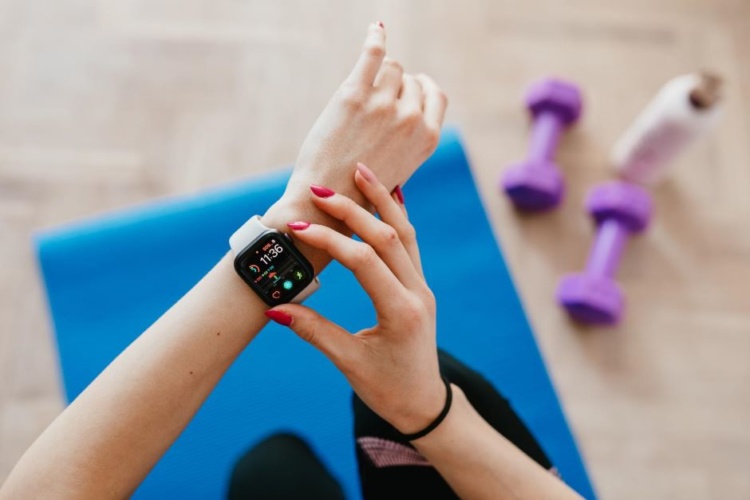The team, led by Associate Professor Isao Shitanda from Tokyo University of Science, has presented a novel design for a biofuel cell array that generates enough power to drive a biosensor and wireless communication devices for a short time. The study, published in the Journal of Power Sources, was carried out with with Dr. Seiya Tsujimura from University of Tsukuba, Dr. Tsutomu Mikawa from RIKEN, and Dr. Hiroyuki Matsui from Yamagata University.
Human sweat-powered e-skin points to future robotics
Wearable wrist device tracks metabolites via sweat
Their new biofuel cell array consists of a water-repellent paper substrate onto which multiple biofuel cells are laid out in series and in parallel; the number of cells depends on the output voltage and power required. In each cell, electrochemical reactions between lactate – a chemical found in sweat - and an enzyme present in the electrodes produce an electric current.
Unlike previous designs, the entire device can be fabricated via screen printing, a technique generally suitable for cost-effective mass production. Similarly, previous cells used silver wires as conducting paths, but the new biofuel cells employ porous carbon ink. Paper layers collect sweat and transport it to all cells simultaneously through the capillary effect.
"In our experiments, our paper-based biofuel cells could generate a voltage of 3.66V and an output power of 4.3mW,” Dr Shitanda said in a statement. “To the best of our knowledge, this power is significantly higher than that of previously reported lactate biofuel cells."

To demonstrate their applicability for wearable biosensors and general electronic devices, the team fabricated a self-driven lactate biosensor that could not only power itself using lactate and measure the lactate concentration in sweat, but also communicate the measured values in real-time to a smartphone via a low-power Bluetooth device.
Lactate is an important biomarker that reflects the intensity of physical exercise in real-time, which is relevant in the training of athletes and patient rehabilitation. According to the team, the proposed biofuel cell arrays can also power other types of wearable electronics.
"We managed to drive a commercially available activity meter for 1.5 hours using one drop of artificial sweat and our biofuel cells, and we expect they should be capable of powering all sorts of devices, such as smartwatches and other commonplace portable gadgets," said Dr Shitanda.




Project to investigate hybrid approach to titanium manufacturing
What is this a hybrid of? Superplastic forming tends to be performed slowly as otherwise the behaviour is the hot creep that typifies hot...